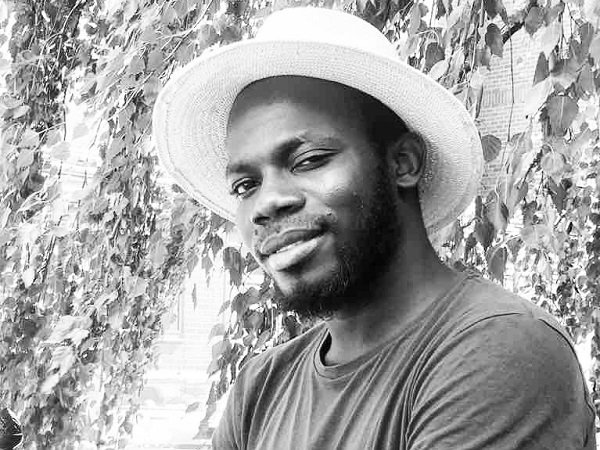Konya Shamsrumi: What is the process of writing a poem like for you? Is it a lot of hard work or easy?
DM Aderibigbe: Oh my! This question doesn’t have an explicit answer. You know, when I started out, writing wasn’t that hard. I used to write 3 to 4 poems a day constantly. I once wrote 10 poems in a day and finished a novella and short story collection in 3 months. But as I grew older, it started to get harder. I can attribute this to maturity. You know, I became a harsher critic of my work and began to watch what I put out. I should mention though, that I still very much enjoy the process.
Konya Shamsrumi: Please describe your sense of identity in this or any possible world in imagery or metaphor?
DM Aderibigbe: In my present state of mind, the most accurate metaphor for my sense of identity would be jollof rice. What I mean in essence is this, when I lived in Nigeria, I wasn’t attached to the idea of jollof as much as I am now. I guess that’s due to the fact that I’m away from home now and the past has become a luxury. So, each time I sit to eat jollof, it serves to remind me of where I’m from and strengthens my sense of identity.

Konya Shamsrumi: If any of your poems could literarily save a person’s life, which poem would it be and can you describe the person whose life you think it would have saved?
DM Aderibigbe: Wow! I know poems save lives, and I know my poetry kind of deals with how we could keep our dead from leaving the living and how to prevent the living from joining the dead, but has my poetry saved lives? I have to leave this question for posterity to answer.
Konya Shamsrumi: What does Africa mean to you, as potential or reality?
DM Aderibigbe: Africa is both potential and reality to me. Although the only other African country I’ve been to is Morocco, I was born in Lagos and grew up under its scorching sun and restless rain. I survived on its dusty streets before finding my way to the University of Lagos. I flowed with the thick water of its gutters, played felele football on its streets. This is my reality, and the reality of most Africans, you know. Hustle every day. But then, I think it is safe to say Africa is also a potential. We’ve always had the natural resources, and these days, the things that are lacking – its human resources as productive force, technology etc – are falling in place. I believe in a few years from now, Africa will be on her feet.
Konya Shamsrumi: Could you share with us one poem you’ve been most impressed or fascinated by? Tell us why and share favourite lines from it.
DM Aderibigbe: Oh geez, so many poems haha. One of my favourite poems ever is “The Seashells of Birdlington North Beach” by Malawian poet, Jack Mapanje. I like how with raw simplicity and directness, one sees how a 28-line poem covers over 500 years of history. One sees how poetry is the past, present and the future. Look at lines like:
She hated anything caged, fish particularly,
Fish caged in glass boxes, ponds, whatever;
‘Reminds me of prisons and slavery,’ she said;
The three lines above, cover more than 300 years of history. How incredible is this?
D.M. Aderibigbe was born in Lagos, Nigeria. He earned his BA in History and Strategic Studies from the University of Lagos, and received his MFA in Creative Writing from Boston University. His chapbook, In Praise of our Absent Father (Akashic Books 2016) is part of New Generation African Poets Chapbook series. He teaches creative writing in South Florida.
- Poets Talk: 5 Questions with Chika Jones - April 9, 2018
- Poets Talk: 5 Questions with Nyachiro Lydia Kasese - February 28, 2018
- Heart of Poetry: Tsenongu Moses Terhemba’s On His Neglect of Prose by Ismail Bala - February 6, 2018











